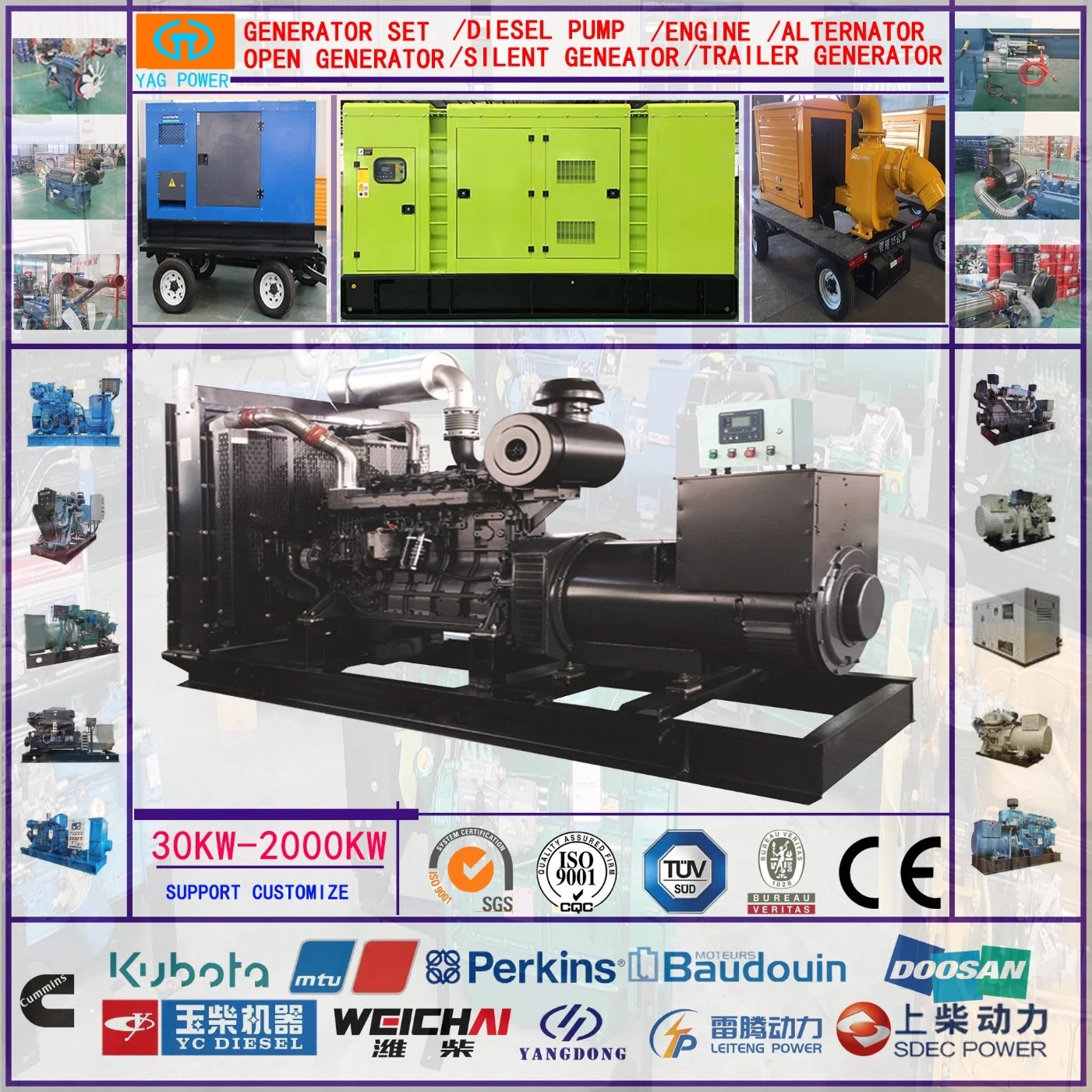Diesel Generators for Durability Testing Ensuring Reliability and Performance

Introduction
Diesel generators play a crucial role in providing backup power during emergencies, as well as serving as the primary source of electricity in various industries and applications. One key aspect of diesel generators that is of paramount importance is their durability and reliability, especially when subjected to rigorous testing conditions. Durability testing is essential to ensure that diesel generators can withstand the demands of continuous operation and adverse environmental conditions. This article will delve into the importance of durability testing for diesel generators, the various testing methods and standards involved, as well as the key considerations for selecting a diesel generator for durability testing purposes.
Importance of Durability Testing for Diesel Generators
Durability testing is a critical aspect of the design and development process for diesel generators. It involves subjecting the generator to various stress factors, such as high temperatures, vibrations, load variations, and environmental conditions, to assess its performance and reliability under real-world operating conditions. By conducting durability testing, manufacturers can identify potential weaknesses and design flaws in the generator, allowing them to make necessary improvements before the product is released to the market.
The main reasons why durability testing is essential for diesel generators include:
1. Reliability: Diesel generators are often used as a backup power source in critical applications such as hospitals, data centers, and industrial facilities. The reliability of the generator is crucial to ensure uninterrupted power supply during emergencies. Durability testing helps manufacturers verify that the generator can operate reliably under different load conditions and environmental factors.
2. Performance: Diesel generators must be able to deliver the required power output consistently over an extended period. Durability testing allows manufacturers to evaluate the performance of the generator under various operating conditions and assess its ability to maintain stable power output without overheating or malfunctioning.
3. Compliance with Standards: Diesel generators used in commercial and industrial settings must comply with specific standards and regulations to ensure safety and reliability. Durability testing helps manufacturers demonstrate that their generators meet the required performance criteria and adhere to industry standards such as ISO, IEC, and ANSI.
Testing Methods for Diesel Generator Durability
There are several testing methods and procedures used to assess the durability and performance of diesel generators. Some of the common testing methods include:
1. Load Testing: Load testing involves subjecting the diesel generator to varying load conditions to evaluate its performance under different power output levels. The generator is typically tested at full load, half load, and no load to assess its response time, voltage regulation, and fuel efficiency.
2. Thermal Testing: Thermal testing is conducted to evaluate the generator's ability to dissipate heat and maintain optimal operating temperatures. The generator is subjected to high temperatures to simulate extreme operating conditions and assess its cooling system's effectiveness.
3. Vibration Testing: Vibration testing is performed to assess the generator's structural integrity and resistance to mechanical stress. The generator is exposed to vibrations of varying frequencies and amplitudes to determine its resilience to shock and vibration during operation.
4. Environmental Testing: Environmental testing involves exposing the generator to different environmental conditions such as humidity, salt spray, dust, and extreme temperatures. This helps manufacturers assess the generator's resistance to corrosion, moisture ingress, and other environmental factors that can affect its performance and longevity.
5. Endurance Testing: Endurance testing involves running the generator continuously for an extended period to evaluate its long-term reliability and performance. This test helps manufacturers identify any potential wear and tear issues, component failures, or performance degradation that may occur over time.
Key Considerations for Selecting a Diesel Generator for Durability Testing
When selecting a diesel generator for durability testing, several key considerations should be taken into account to ensure accurate and reliable test results. Some of the essential factors to consider include:
1. Power Rating: The power rating of the generator should be chosen based on the intended application and load requirements. Selecting a generator with the appropriate power output ensures that the durability testing accurately reflects real-world operating conditions.
2. Fuel Type: Diesel generators are available in various fuel options, including diesel, natural gas, and bi-fuel. The fuel type chosen for durability testing should align with the generator's intended application and environmental conditions.
3. Cooling System: The cooling system of the generator plays a crucial role in maintaining optimal operating temperatures and preventing overheating. Selecting a generator with an efficient cooling system ensures reliable performance during durability testing.

4. https://www.lkpowerplant.com/400kw/ : The control system of the generator should offer advanced monitoring and diagnostic capabilities to track performance metrics, detect anomalies, and ensure safe operation during testing.
5. Compliance with Standards: Ensure that the diesel generator meets relevant industry standards and regulations, such as emissions requirements, safety standards, and performance criteria. Compliance with standards is essential to ensure the generator's reliability and safety during durability testing.
Conclusion
Durability testing is a critical aspect of assessing the reliability, performance, and longevity of diesel generators. By subjecting the generator to various testing methods and stress factors, manufacturers can ensure that the product meets the required standards and performs optimally under different operating conditions. Selecting a diesel generator for durability testing requires careful consideration of factors such as power rating, fuel type, cooling system, control system, and compliance with standards. By following these key considerations, manufacturers can conduct accurate and reliable durability testing to validate the performance and reliability of diesel generators in real-world applications.
